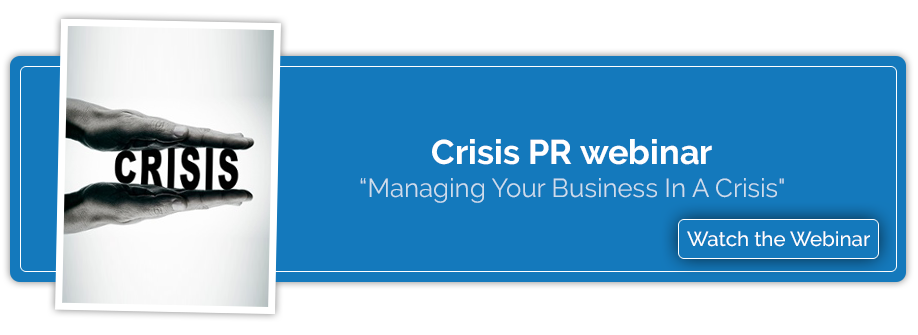Delta Air Lines’ $30K payout: A smart crisis move or a risky precedent?
By Axia Public RelationsFebruary 21, 2025
What we can learn from Delta’s crisis response strategy
 Delta Air Lines recently made headlines for offering $30,000 to each passenger aboard the plane that flipped on a runway in Toronto on Monday. While this immediate payout was swift and decisive, the move raises questions about whether financial compensation alone is enough in crisis communications.
Delta Air Lines recently made headlines for offering $30,000 to each passenger aboard the plane that flipped on a runway in Toronto on Monday. While this immediate payout was swift and decisive, the move raises questions about whether financial compensation alone is enough in crisis communications.
Audio: Listen to this article.
As a public relations and crisis communication strategist who advises billion-dollar corporations, I specialize in reputation management and crisis response. Brands can learn from what Delta did right, what risks they took, and what steps they should take next to build long-term customer trust.
Was Delta’s $30K offer the right move?
What Delta did right:
✔ Took control of the narrative early
Instead of allowing speculation, frustration, or class-action lawsuits to build, Delta acted quickly, offering a tangible resolution before passengers demanded it.
✔ Demonstrated customer-centric decision-making
By proactively offering financial relief, Delta reinforced its brand positioning as a customer-first airline — something travelers may remember when booking future flights.
✔ Minimized legal exposure and public backlash
A preemptive payout reduces the likelihood of passengers banding together in mass litigation. It shifts the conversation from “What did Delta do wrong?” to “Look at how well Delta handled this.”
But could this move backfire?
While this strategy has clear advantages, there are risks Delta must consider:
⚠ Perceived as an admission of guilt
Some may interpret the quick payout as a sign that Delta is avoiding deeper scrutiny or attempting to cover up operational issues.
⚠ Future precedent concerns
Will passengers expect similar payouts in future incidents? If Delta doesn’t match this level of compensation next time, it risks being seen as inconsistent.
⚠ Is $30K enough?
Given the potential physical, emotional, and psychological trauma passengers endured, some may feel the compensation doesn’t reflect the severity of their experience. If passengers take the money and later regret it, Delta could still face lawsuits.
Proactive vs. reactive crisis strategies: Delta’s advantage
Companies that wait for public outrage to build before responding are always on the defensive. Proactive crisis management, like Delta’s, is about shaping the narrative before it spirals out of control.
A reactive approach (waiting for legal action or social media backlash before responding) can:
- Increase long-term costs from legal battles and reputational damage
- Weaken consumer trust by appearing reluctant or insincere
- Make companies look out of touch with stakeholder expectations
By acting swiftly, Delta prevented the crisis from escalating — but a financial payout alone isn’t enough.
How this compares to the Johnson & Johnson Tylenol crisis
Johnson & Johnson’s handling of the 1982 Tylenol crisis remains a gold standard for corporate crisis response. Unlike Delta’s payout approach, J&J’s focus was on public safety, industry-wide reform, and long-term trust-building.
🔹 Tylenol’s strategy: They pulled 31 million bottles from shelves and led the industry in tamper-proof packaging innovations.
🔹 Delta’s strategy: They provided financial compensation with no major operational or safety reform (yet).
💡 Lesson for Delta: If it wants to match J&J’s level of public trust, it must:
✔ Go beyond financial compensation and communicate safety improvements.
✔ Communicate transparently about the cause of the incident and how the airline will prevent future occurrences.
✔ Demonstrate an ongoing commitment to customer care beyond this single crisis.
Customer trust and crisis management: What brands can learn
A crisis shapes a brand’s reputation in the moment and for years to come. Trust and loyalty aren’t built on one-time payouts but consistent authentic actions over time.
🔹 Brands must balance immediate costs with long-term loyalty
A $30K payout may reduce legal risks today, but it won’t guarantee long-term customer retention if the airline fails to address broader concerns.
🔹 Brands must pair financial compensation with transparency
Delta should reinforce trust by communicating exactly what happened, why, and how it will work to improve the safety of future flights.
🔹 The best crisis responses combine legal and PR expertise
Companies should collaborate with legal teams and PR strategists to ensure messaging is:
✔ Transparent
✔ Empathetic
✔ Strategically crafted to avoid further reputational harm
Final takeaway: Delta needs a follow-up strategy
✔ Delta took the right first step. It controlled the narrative and minimized backlash.
❌ But if this is the only step, it won’t be enough.
The airline must:
- Issue a transparent safety update explaining how it will prevent future incidents.
- Provide ongoing engagement with affected passengers beyond compensation.
- Ensure consistency in future crisis responses to avoid setting a problematic precedent.
A strong crisis response isn’t just about reacting to what happened today — it’s about reinforcing trust for tomorrow.
Want expert crisis communication for your brand?
At Axia Public Relations, we help companies navigate high-stakes crises, protect their reputations, and implement proactive crisis communication strategies.
🔗 Learn how to safeguard your brand: https://www.axiapr.com/crisis
📞 Contact us today to discuss your crisis response strategy: https://www.axiapr.com/contact or +1-888-PR-FIRM-8.
Your brand’s reputation is priceless. Let’s protect it together.
Photo by Brett Sayles
Topics: crisis communications


Comment on This Article